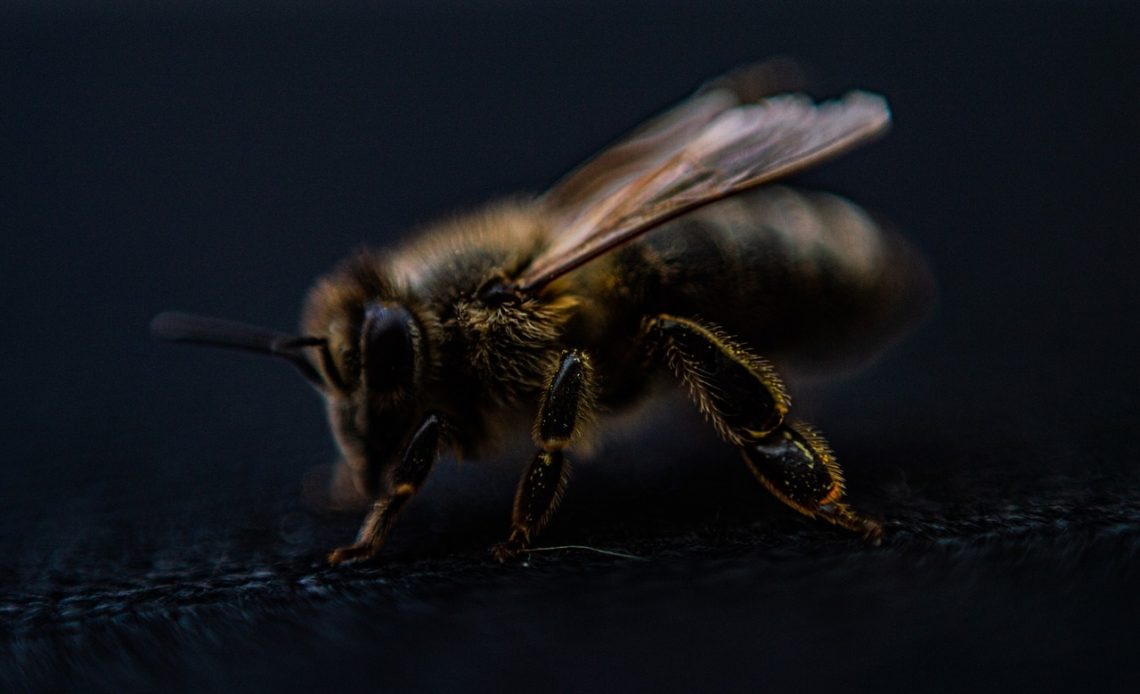

We’re here to help! Wild Yards is a completely free website that is 100% dedicated to helping you create a wildlife-friendly, sustainable yard. Read more
WildYards is reader-supported. When you buy a product through a link on our site, we may earn a comission. Every product is independently selected by our (obsessive) editors and our reviews are unbiased and objective. Read more about our mission or our privacy policy.
Bees are fascinating creatures capable of some incredible flights of fancy – and we rely on them to keep the food chain running. But what about their capacity to hear sound? Can bees hear music – and if so, do they have favorite sounds?
Bees can hear music – but not in the traditional way, as they don’t have ears! Bees are thought to have very sensitive antennae – as well as legs – that can pick up on vibrations. However, research into this phenomenon is still ongoing!
Can you attract bees to your garden by playing certain music or sounds? Keep reading, and we will give you a straight answer!
How Do Bees Use Vibrations?
It’s all to do with their famous ‘waggle dance’. Bees – believe it or not – communicate to each other the location of pollen and nectar nearby through interpretive movements. To us, it looks like they are dancing – when, in fact, they are producing vibrations with their bodies (such as through their antennae and their legs) to deliver directions.
Bees produce vibrations along with visual cues to establish where others need to go to find fresh patches of pollen. They dance, therefore, as part of a complex language.
In-depth research shows that bees are fairly obsessive regarding frequencies and uniformity. This, it’s believed, is to help ensure that their instructions are delivered accurately.
The sweet spot for bees and vibrations is, according to research, somewhere between 250Hz and 500Hz. Therefore, some gardeners and bee fanatics have gone to the lengths of reproducing these frequencies to help the insects make their way to their blooms and flowerbeds!
Therefore, while setting up the perfect bee-friendly garden or yard, it may be worth matching these frequencies to encourage them. Make sure to consider your existing wildlife, too – do hummingbirds eat bees, for example?
How Bees Detect Sound
What remains really curious is the fact that we are still relatively unclear on how all bees actually detect sound and vibration at all. Studies have found that there are cells in their antennae that are likely to be sensitive to vibration – and that in some species of bee, their legs have organs that have the same sensitivity.
Studies are ongoing with regard to bumblebees and sound, for example – as their physiognomy is of course much different to the average worker or honey bee.
It’s thought that bees buzz and vibrate in their hive to communicate, too. This perhaps goes some way to further explain their incredible efficiency and work ethic.
What Music Should I Play to Attract Bees?
Here’s the fun part – bees love a variety of different musical genres as it’s all to do with the frequency!
Various beekeepers and websites suggest that, for example, bees are likely to be attracted to the booming, reverberating basslines in some of Queen’s earliest hits, as well as works from artists as diverse as Michael Jackson, The Doors, Bruno Mars, Chic, Pink Floyd, Nirvana, The Beatles and Fleetwood Mac.
You can even try playing some classical Rimsky Korsakov’s Flight of the Bumblebees or some Bee Gees! (Sorry, couldn’t resist).
Why not take a look through your own playlists for songs that make your speakers buzz? The fuzzier the bass, the better.
Of course, to attract bees to your garden, you should make sure to balance out sounds they love with fantastic flowers and blooms. After all, you wouldn’t want to waste their journeys! Consider clematis that attract bees, for example, if you are considering growing vines this coming season.
Do you have any experience with attracting bees to your garden through sound? Let us know your tips and tricks in the comments below!
